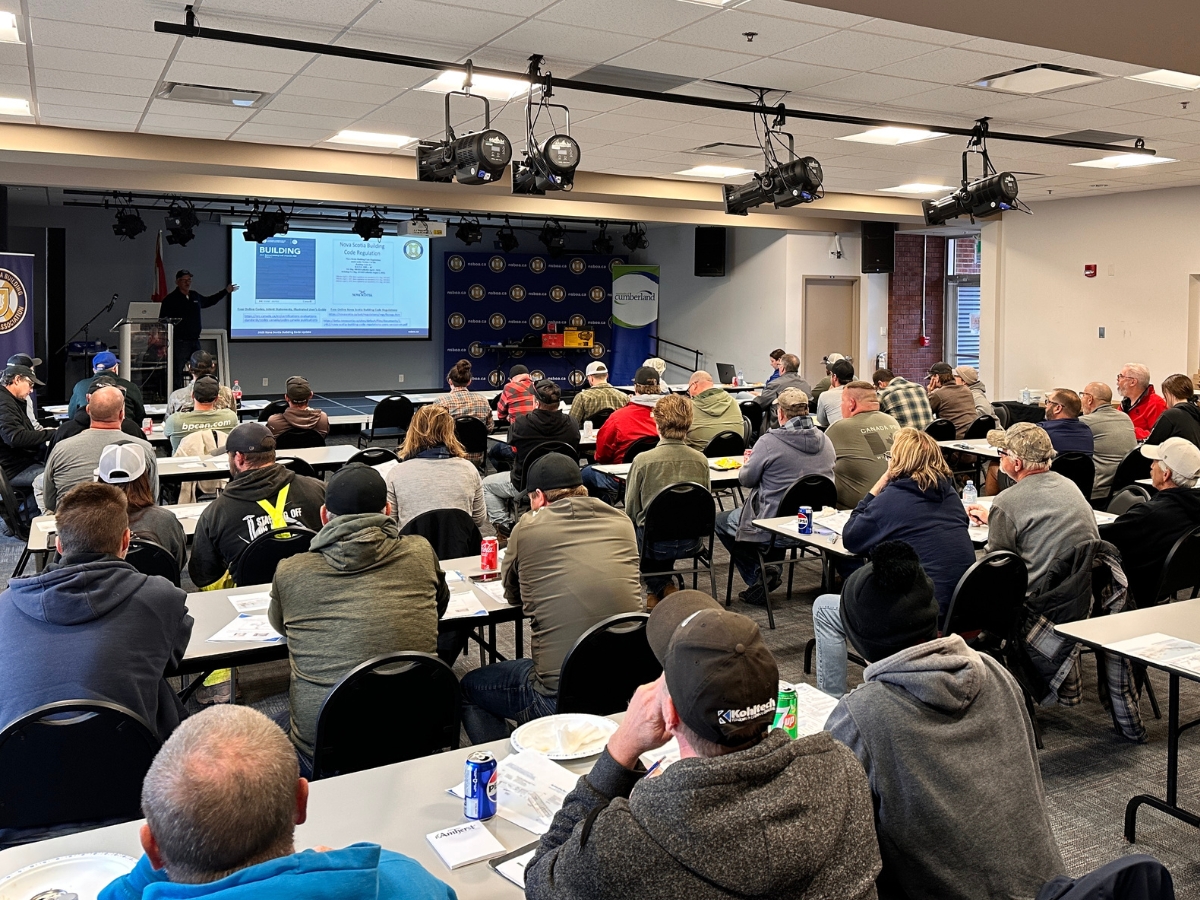Ensuring safer, more accessible buildings starts with staying informed.
Last night, the Town of Amherst hosted the Nova Scotia Building Officials Association along with our co-sponsor, the Municipality of the County of Cumberland. This was the second of three events set for northern Nova Scotia builders and contractors to learn about significant updates to the 2020 National Building Code and the 2025 Nova Scotia Building Code Regulations.

About 50 were in attendance, representing a variety of roles within the construction industry.
The National Building Code recently received more than 400 updates, and the most important and applicable information was selected to share during the session. The majority of these changes are reflected in the Nova Scotia Building Code Regulations, which is modelled on the National Building Code and adjusted as required.
Some of the topics covered Thursday night included new rules requiring exit signs to include tactile markings, for the visually impaired – a part of the province’s Accessibility Act that aims to make Nova Scotia fully accessible to people with disabilities by 2030.
Attendees learned about new requirements to include floor location and stairwell reference information within building stairwells, as well as changes to where open risers are permitted on staircases. Similarly, changes to railing construction allowances were shared – all with the intention of making buildings safer for the people who use them.
Participants also saw a demonstration for a new window opening control device (or WOCD) that limits how far a window can open. Intended to keep small children safe, there are new opening limits applicable to windows less than 36” off the floor, with more than 6 feet to the ground below or a platform.

Pat Boyce - NSBOA Representative for Zone 1 - led the Thursday night information session and welcomed Dana Trueman - Territorial Sales Manager for Kohltech Windows & Entrance Systems - to demonstrate the company's new WOCD (Window Opening Control Device) technology.
These considerations for windows are an excellent example of why information sessions like this are important. Because a permit is not required for the retrofit of windows, it becomes the responsibility of builders and contractors to recognize when a WOCD might be required in order to keep everyone safe.
The Amherst event – as well as sessions in Truro and New Glasgow – will be used as models to deliver similar information sessions to builders and contractors in all other areas of the province, ensuring everyone has the same understanding of recent national and provincial building code updates.

